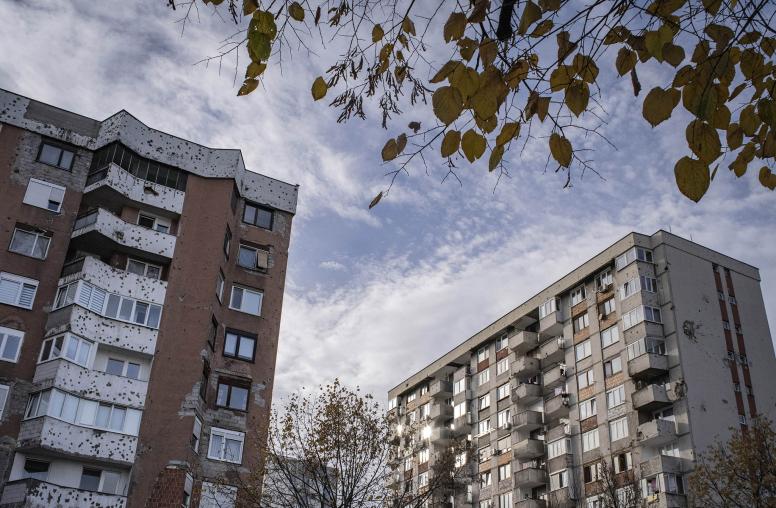Chaplains as Liaisons with Religious Leaders: Lessons from Iraq and Afghanistan
Peaceworks No. 56
As this study demonstrates, military chaplains, as clergy and officers, occupy a unique space that blends a secular status and a religious one, making them well suited to serve as intermediaries between military and religious leaders in areas of conflict and postconflict stabilization.
Summary
In Iraq and Afghanistan, as well as in countless other hotspots around the world, religion has been a major factor in matters of war and peace. Since religion often plays a significant role in conflicts, it also needs to be one of the factors addressed in mediating conflicts. Yet, because the United States separates religion from political matters to a greater degree than many other areas of the world, Americans frequently have difficulty understanding the crucial role religion can play in conflict transformation.
As this study demonstrates, military chaplains, as clergy and officers, occupy a unique space that blends a secular status and a religious one, making them well suited to serve as intermediaries between military and religious leaders in areas of conflict and postconflict stabilization. While chaplains are not positioned to take on such major conflict mediation tasks as healing historic wounds in ethnic and sectarian conflict, they are positioned to communicate with religious leaders in discrete areas of conflict and contribute toward improved dialogue, trust, coordination, problem solving, and localized violence reduction. By drawing on the experiences of fourteen chaplains who had substantial interaction with religious leaders in Iraq and/or Afghanistan, or who supervised other chaplains involved in such activities, the author provides an exploratory study of the important mediating role chaplains can play in overseas military operations.
After briefly examining the military guidelines that provide the basis for chaplains to act as liaisons with religious leaders, the author examines the chaplain’s dual standing as a clergyperson and a military officer and the boundaries of the chaplain’s potential role as liaison. Specifically, the author unequivocally states that the primary mediating focus of chaplains should be on establishing communications and building relationships with local religious leaders on the ground—not on attempting to negotiate the resolution of broad historical problems. In harvesting the accounts of the fourteen chaplains whom he interviewed, the author next offers key peacebuilding principles and lessons that are informed by a sound reading of conflict resolution literature. For example, he finds that all chaplain outreach efforts must be balanced with security concerns to ensure not just the chaplains’ safety but also that of the local religious leaders with whom they meet. Further, he finds that chaplains who wish to serve in such a manner must have a willingness and ability to interact with religious leaders of other faiths and must not be theologically and personally inclined to view those of other faiths as enemies. Ultimately, the accounts he offers are meant to provide real-world examples of successful civil-military relations and to provide crucial guidance for chaplains to follow when serving as liaisons between the military and local religious leaders in overseas conflict zones.
While the primary role of military chaplains is to minister to the troops, as this study powerfully illustrates, chaplains can do much to not only mediate conflict on the ground but also help win the hearts and minds of local populations in support of U.S. combat and postconflict stability operations throughout the world.
About the Author
Commander George Adams has been an ordained Southern Baptist minister since 1980 and a United States Navy chaplain since 1987. He was a 2004-2005 Navy chaplain fellow at the United States Institute of Peace, and his other duty stations have included two sea duty assignments, two overseas tours, a marine battalion, a naval shipyard, and postgraduate school. Adams's military awards include the Meritorious Service Medal (two awards), Navy Commendation Medal (three awards), Navy Achievement Medal (three awards), and various service and campaign awards. Prior to his commission in the United States Navy, he served as a minister to youth and college students from 1981 to 1987. Adams received an M.A. degree from Fuller Theological Seminary, an M.Div. degree from Golden Gate Baptist Theological Seminary, and a D.Min. degree from Midwestern Baptist Theological Seminary.



